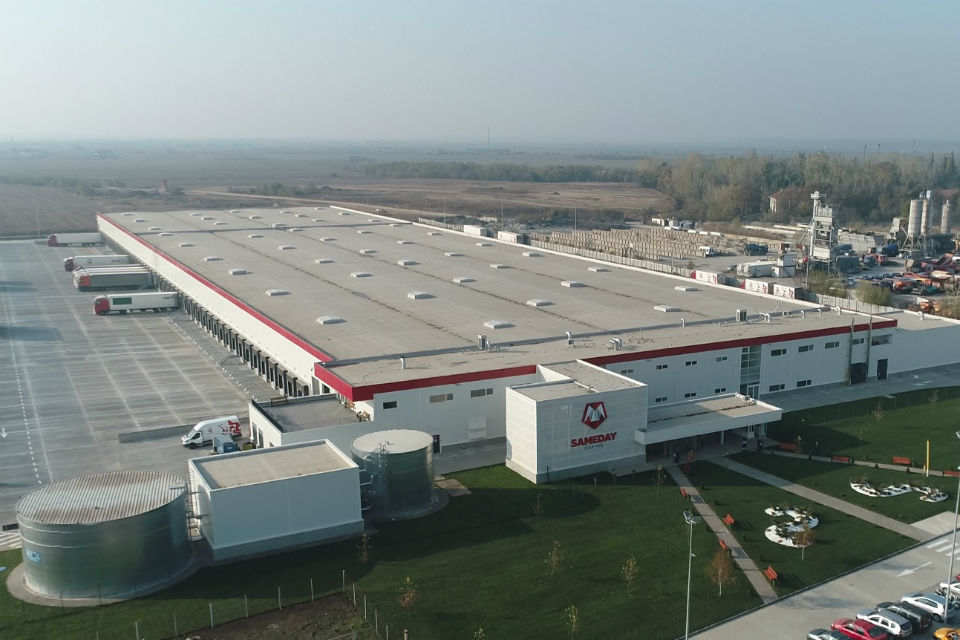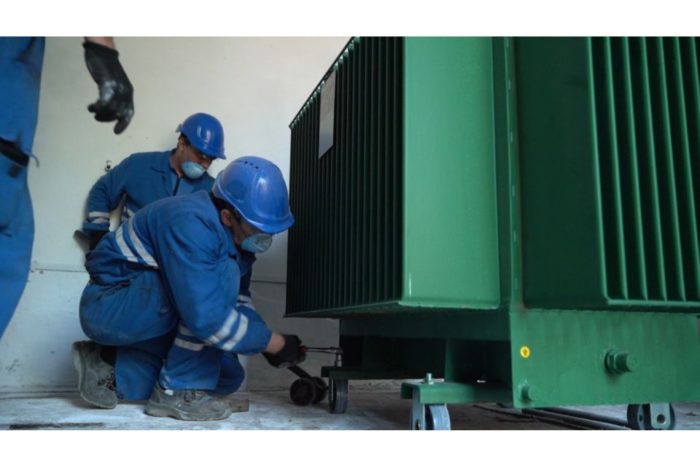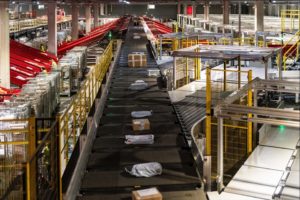Industrial and logistics sector counts on eCommerce development to recover the losses generated by COVID-19 epidemics

Although less impacted by the effects of the Covid-19 epidemics than other real estate sectors, the industrial and logistics market is also adjusting to the new business context. Therefore, more and more companies are seeking solutions in online, considering that online sales increased for 75 percent of companies in this period. In the same time, market players are adopting local or proximity solutions for materials (19 percent), in order not to depend on imports from distant countries, are restructuring projects and processes (46 percent) or are even putting some projects on hold (33 percent), according to a study conducted by Colliers International among 76 industrial & logistics companies in the Romanian market. About 59 percent expect rents to decrease in the next 12 months, on the background of slowing down logistic operations.
85 percent of industrial & logistics companies see their business impacted in the actual context, but 54 percent consider the effects are minor compared to other markets. 29 percent say the business is affected by the employees’ absence, 28 percent by restrictions in delivery, 16 percent by supply bottlenecks and 13 percent by a halted production, according to Colliers International’s study conducted among companies operating in logistics/transport, developers, companies in retail and eCommerce, production and manufacturing and investors in the industrial and logistics market. The study is part of a broader analysis of the overall real estate market outlook, based on relevant insights from all market segments, aimed to bring some clarity about the industry.
Online platforms and a multichannel approach, possible solutions to minimize impact
With online sales increasing over the past month, according to 75 percent of participants to Colliers International’s study that are active in the retail segment, industrial and logistics companies are now seeking to invest in online platforms and in diversifying sales channels to better manage risks associated with the current context. 80 percent of retailers who responded to the survey say they have online stores or want to invest in such a platform in the near future, counting that it will act as a buffer to the sales decline in physical stores.
“A multi-channel approach for logistics and industrial companies active in retail is expected to gain traction in the future. This would be largely neutral for a warehouse space leased by a specific tenant, it could even lead to an increase in the long-term leased area, but it would help both tenants and landlords over the long term given that the former would likely have a better cash flow, including in delicate situations like this one”, says Laurențiu Duică, Partner & Head of Industrial Agency at Colliers International.
The expansion of online sales will take place in a context where all of the companies took precautionary measures such as travel restrictions, increased safety and hygiene measures, work from home, etc. The highest number of measures were taken by retail players, mainly in terms of restructuring projects or processes. These kinds of measures were also taken by e-commerce players even though for some, depending on the line of business.
Local suppliers to avoid raw materials supply bottlenecks
In the current context, producers will increasingly focus on local solutions for the raw material, in order to no longer depend on imports from more distant countries, such as China, for example, and to avoid supply chain bottlenecks. Thus, in the next period, the specialists estimate that the local production spaces will experience a significant increase, and even Chinese companies will be interested in developing production centers in Europe, including Romania.
“In the medium and long term, distribution chains will be restructured, meaning that manufacturers and logistics companies will focus most probably on local and regional suppliers to avoid stopping or reducing the supply of raw materials in the future. The business perspective of large companies will remain global, but will be supported mainly by local and regional resources, especially if such business decisions will also be supported by legislative changes. Warehouses will be decentralized, and market players will choose to have smaller warehouses in different countries, instead of a large central warehouse from which to send goods to various markets”, says Laurențiu Duică.
Retail & logistics demand is expected to decrease, reflecting on rents
63 percent of the respondents see a demand decrease in the next 12 months and 59 percent believe rents will follow the same trend as a result. “The aligned market expectation in terms of demand and rents offers a somewhat positive outlook, indicating that landlords and tenants have a good starting point for potentially difficult negotiations that lie ahead”, says Laurențiu Duică.
The long-term consequences of the Covid-19 pandemic will most likely be the restructuring of the supply chain, according to 69 percent of participants to Colliers International’s survey, followed by delays in the flow of goods (59 percent) and an increase in storage capacity (31 percent). Only 10 percent of industrial and logistics companies believe there will be no major consequences.
The relationship with China, affected
43 percent of the respondents see a change in thinking in the industrial sector about relations with China regarding imports and warehousing in the EU. 45 percent think there will be only a short term change and 13 percent see no change. It is still too early to judge the impact of the post-pandemic impact on trade relations, but the specialists underscore that a large part of market participants would expect a re-balancing of sorts with regards to China.
For Romania, this could mean the re-shoring of new production facilities for European markets. Similar surveys undertaken by Colliers in neighboring countries yielded similar results, with the majority of Polish I&L players expecting either short-term or long-term opportunities at the expense of China.















